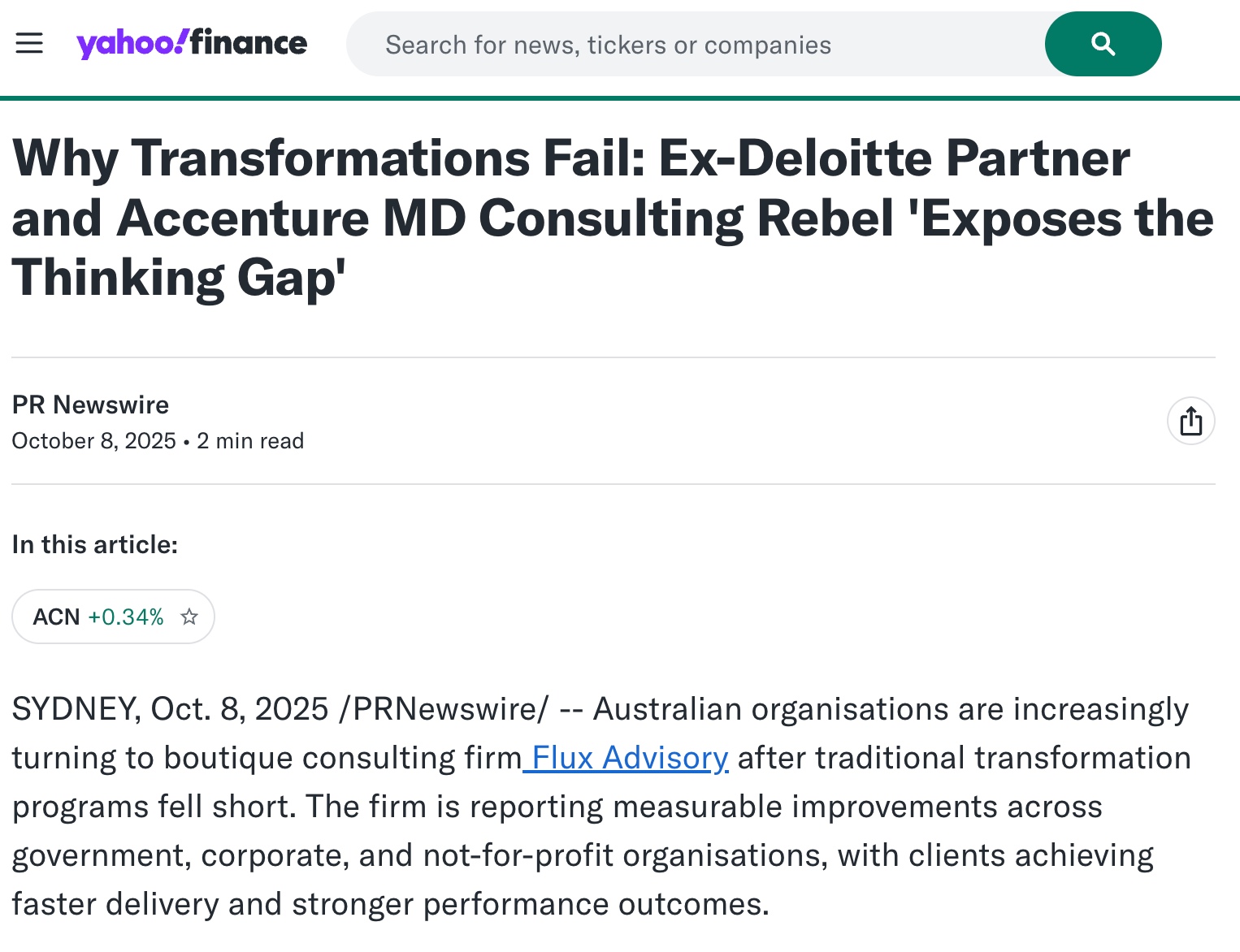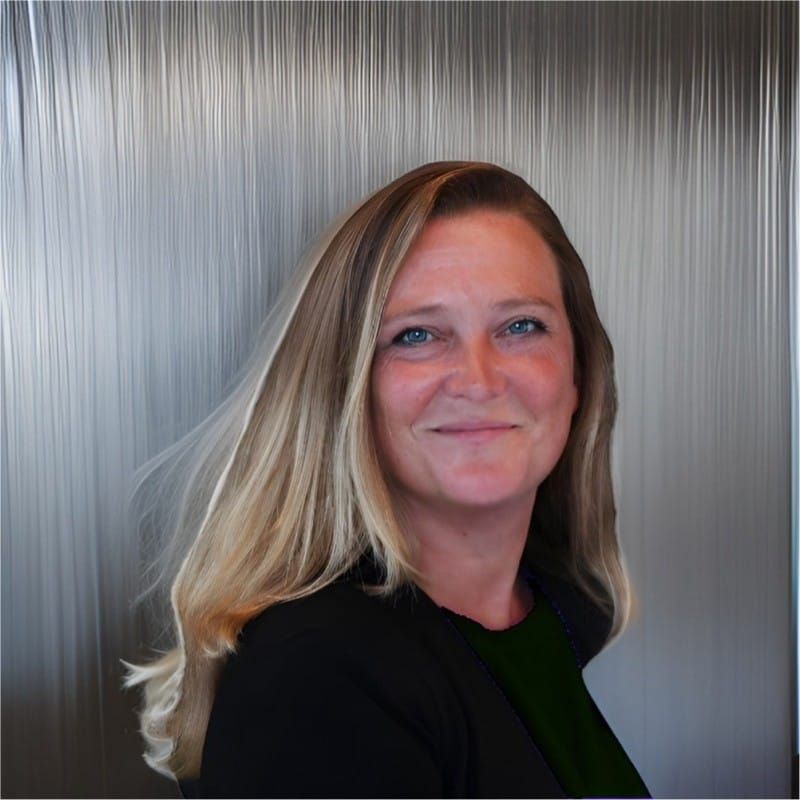People regularly refer to me as a transformation leader - but also a Consulting Rebel. My children hate the name — they think it’s old school and cringe — but for me, it fits perfectly.

A rebel isn’t a troublemaker; a rebel challenges the status quo. A rebel sees how things are done and asks, “Couldn’t this be better?”
That’s been my life’s pattern — questioning, improving, rebuilding. My mantra has always been “Be the change you want to see in the world.” It’s how I’ve lived since I was small, from the Amazon jungle to the corridors of global consulting firms.
Born into Change
I was born in Plymouth England , but my story really began 300 miles deep in the Amazon rainforest. My father was in forestry, so as a baby, I lived surrounded by nature — and, according to my mother, by Brazilian women who loved feeding me bananas. My father’s work involved cutting down trees, something I now stand firmly against. But back then, it was simply how we survived.
From there, we moved constantly — Argentina, North America, Spain, Sri Lanka, Oman. By the time I turned 18, I’d lived in over 50 houses and attended 17 schools across 12 countries. I had three father figures and countless new beginnings. My therapist says that’s why I’m so good at change — because I don’t like it. I had to learn to manage chaos early, building structure where there was none. That muscle — the ability to adapt, design frameworks, and create stability in motion — is the same one I use in transformation today.
Even as a child, I was obsessed with fixing things. In Spain, at eight years old, I started selling my toys from a little stand so I could buy cat food for the strays around our estate. I set up a feeding station, recruited the other kids, and created my first micro-initiative for good — even if the parents weren’t too thrilled.
In Sri Lanka, I gave away my clothes to the local children who lived in nearby huts. My mother would ask, “Where’s all your stuff?” and I’d say, “Oh, I’ve been to the village again.” Looking back, that was the start of everything: entrepreneurship, empathy, and a refusal to just watch when something needed changing.
Early Lessons in Transformation
I didn’t come from wealth. My mum was a teacher; my dad ran a small shop. We scraped by most of the time. When my stepfather lost his job, we lived in two rooms on a farm with no heating, selling kitchens door to door to get through winter. Later, when he got a good job overseas, we suddenly had more than we’d ever had — a big house in Sri Lanka, even servants. I was only ten, but I saw the sharp contrast between our life and the poverty outside our gates. Rich and poor, side by side. That never sat right with me, and it still doesn’t.
That discomfort became purpose. At 26, while working for the UK Ministry of Defence, I became the first corporate secondee to The Prince’s Trust. I was placed in Croydon with 16 young offenders aged 11 to 17, helping them find a path back to education or work. It was the hardest 12 weeks of my career. Some were homeless; others had been in and out of the system. I threw everything I had into it — my energy, my heart — and when half of them made it into jobs or training, that was success. That experience taught me what transformation really means. It’s not slides or frameworks. It’s people, pain, and persistence.
From Consultant to Change Architect
When I moved into consulting — a grad at EY, then later after my Government work at KPMG, then Deloitte Australia, then Accenture — I brought that same mindset. My goal wasn’t just to deliver projects; it was to make things better.
At KPMG, I helped The Philosophy Foundation triple their growth by showing them how to teach philosophy and critical thinking not only to disadvantaged kids but to corporates. The fees from the corporates could then fund their outreach work. That simple shift in business model turned sustainability into a social multiplier.
One of the most defining moments of my career came when I worked on the UK government’s ten-year plan for Afghanistan — a vast, complex effort to reduce the country’s dependency on opium. While the American approach was to burn the poppy fields, the UK team focused on systems: rebuilding governance, creating alternative livelihoods, redesigning the economic model. I played a tiny part in a massive team, but it changed how I saw transformation forever. That was change at the country level — the biggest system of all.
From that point, I knew that my talent for transformation wasn’t just about fixing companies; it was about rethinking systems — economic, social, human. But I also realised that to influence at scale, I needed seniority. Influence in consulting comes from credibility, and credibility comes from results. So I set my sights on leadership — partnership at Deloitte, senior managing director at Accenture. Not for the title, but for the platform.
Building Flux: A New Model of Consulting
The higher I climbed, the more I saw the same problem: consulting firms talked about purpose, but profit always came first. If a charity needed help, they’d send whoever wasn’t billable — the “bench.” Well-intentioned, but not transformative.
When I founded Flux, I wanted to flip that. My goal was to create an impact business disguised as a consulting firm — one where profit directly fuels purpose. The greater the profit, the greater the impact. We don’t donate leftovers; we invest our best. Our partnership with Save the Children isn’t a “cost-reduced engagement.” It’s a true partnership — no time sheets, no cost cards, just one unified team working for outcomes that matter.
For me, this is what consulting should be: rebels with a cause. We apply the same high-performance transformation methods used for corporations to solve humanitarian and social challenges. It’s the Robin Hood philosophy — not stealing from the rich, but redirecting capability and capital to where it changes lives.
Rebellion with Purpose
Being a rebel isn’t about rejecting the system. It’s about rewriting it. I’ve lived through enough instability to know that change can be terrifying, but it’s also where growth happens — for people, companies, and communities alike.
That’s why I built Flux. That’s why I wear Consulting Rebel as a badge of honour, no matter what my kids say. Because for me, rebellion isn’t about chaos — it’s about conscience. It’s about refusing to accept that consulting can’t do better. And it’s about using everything I’ve learned — from 17 schools, 12 countries, 50 houses, and one wild childhood — to prove that transformation, when done right, really can change the world.

